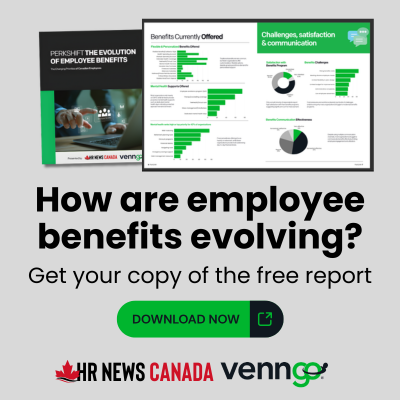Eighty per cent of Canadian businesses say keeping a human in the loop is important when using artificial intelligence, even as organizations face pressure to adopt the technology more broadly, according to new research from ADP Canada.
The finding, part of ADP Canada’s 2026 Workplace Trends report released Nov. 17, signals that Canadian employers are taking a cautious approach to AI implementation despite viewing the technology as essential for competitiveness.
The report surveyed small, mid-sized and large Canadian companies about their approaches to talent management, compliance and emerging workplace technologies.
“Canadian organizations face unique workforce challenges as they navigate both technological transformation and evolving employee expectations,” said Jim Lord, president of ADP Canada. “From managing new legislative and regulatory AI disclosure requirements, to the need for increased skills development, employers are at a pivotal moment as they balance increased innovation with human-centered practices.”
Core HR processes show efficiency gaps
Less than half of Canadian employers rate their onboarding and hiring processes as highly efficient, at 46 per cent and 43 per cent respectively, according to the report. More than half lack confidence in capturing employee feedback and accessing data to understand employee sentiment.
The research found that 87 per cent of organizations believe they are responsible for supporting employee mental well-being. However, fewer than half currently offer mental health benefits, with cost cited as the primary barrier.
Strong work ethic most wanted, hardest to find
When asked what skills Canadian businesses prioritize in new hires, strong work ethic topped the list, followed by detail orientation, time management, problem solving and ability to work on a team. Those same skills were identified as the most difficult to find among new hires.
Managing a multi-generational workforce presents challenges across five generations now working together. Canadian businesses identified differences in work ethic and commitment, recruiting and retention difficulties, intergenerational respect, work-life balance expectations, and technology adoption as their biggest hurdles.
AI viewed as essential but skills hiring lags
Seventy-five per cent of large Canadian companies and 61 per cent of mid-sized companies view AI as essential for competitiveness. Yet only 13 per cent and five per cent respectively are prioritizing hiring for AI skills, according to the report.
Beyond the 80 per cent who prioritize human oversight, 64 per cent of Canadian businesses agreed that cultivating a sense of trust is important when using AI.
Nearly half of Canadian businesses say ethical management of AI systems is a priority, yet only 22 per cent have an AI ethics policy in place.
The report found that 47 per cent of businesses believe AI can help with skills development, 40 per cent think it can assist in onboarding and offboarding employees, and 38 per cent see potential for AI to help with attracting and retaining employees.
Cautious approach to AI in compliance
Only 21 per cent of Canadian organizations currently use AI for compliance tasks. Among those who do, 51 per cent have strong trust in its accuracy. Among businesses not using AI for compliance, only 10 per cent have plans to do so.
The top compliance challenges facing Canadian businesses are data privacy, paid leave, payroll tax requirements, pay transparency and overtime requirements, according to the report.
To navigate compliance obligations, Canadian organizations turn to their lawyers, HR or payroll providers, government websites and accountants for expertise.





